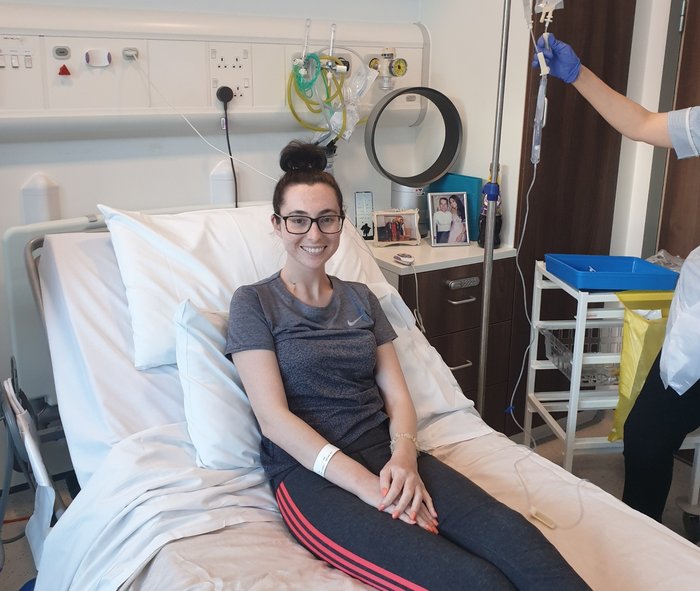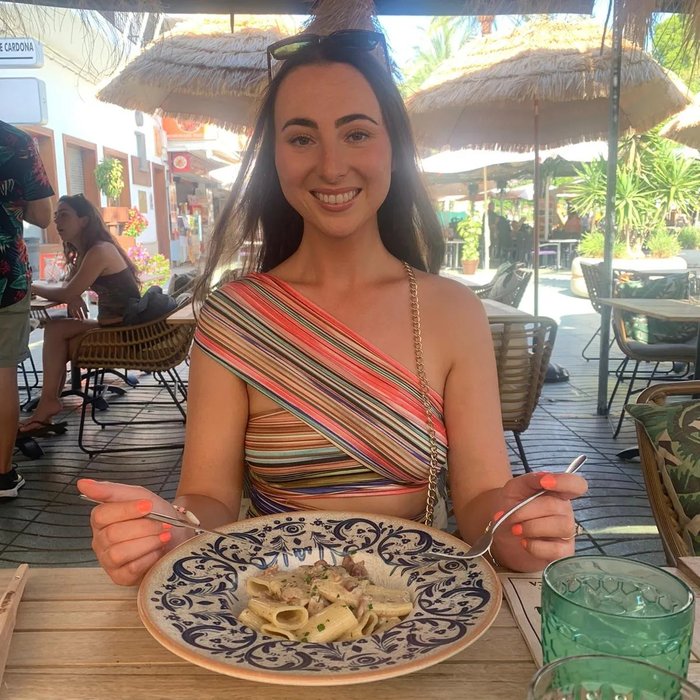CAR-T therapy, Kymriah, available routinely on NHS for form of childhood and young-adult leukaemia
United Kingdom
Today (Thursday 11th April), the regulatory body, The National Institute for Health and Care Excellence (NICE), has recommended the drug Tisagenlecleucel (Kymriah) for routine use on the NHS in England. The drug, a type of CAR-T therapy, will now be an option for people 25 years and under with the blood cancer, B-cell acute lymphoblastic leukaemia (B-cell ALL), which has come back (relapsed) or stopped responding to treatment (refractory).

Sophie Mulligan, who received Kymriah to treat the blood cancer B-cell ALL
Together blood cancer is the UK’s fifth most common cancer, but many types of blood cancer are rare. Around 800 people are diagnosed with ALL in the UK each year, making it one of the most common cancers affecting children and young adults.
Kymriah is a form of CAR-T therapy that uses the body’s own immune system to seek out and destroy cancer cells. In some cases, CAR-T therapies have cured people where all other treatments have failed. The drug works by taking some T cells (blood cells that help to protect you from infection and disease) out of your blood, genetically modifying them in a lab so they are much better at finding and killing cancer cells, and then putting them back into your blood to fight cancer.
Sophie Mulligan now 28, from Liverpool, received the drug, manufactured by the pharmaceutical company Novartis. Sophie helped inform Blood Cancer UK’s evidence submission to NICE.
Without this drug, I faced very limited options, and had a relatively poor prognosis, and would have otherwise engaged in palliative care conversations."
- Sophie from Liverpool

For my blood cancer, Kymriah was an entirely game-changing, life-altering option. "
- Sophie Mulligan, 28
“It also had the benefit that a low dose meant that I didn’t have to lose my hair, like some intensive chemotherapy options. I could see myself in the mirror every-day, rather than the shadow of my former self I had seen with previous treatments.
“While the drug did lead to a few side effects such as fever, low blood pressure and headache, it was all controlled on the ward and didn’t require intensive care at any point. I’m glad now that other young people with blood cancer are able to access the latest treatments that offer the genuine chance of a cure.”
The recommendation is based on evidence from the initial review of the drug in 2018 as well as additional data collected during the time it was available through the Cancer Drugs Fund. This includes real-world evidence of Kymriah's use on the NHS and new clinical trial data.
It is estimated that 40 children and young adults would be eligible for this treatment in England.
Rincy George, Policy Advisor at Blood Cancer UK said:
“We are beginning to see CAR-T therapies, which are one of the most promising breakthroughs in blood cancer treatment over the past decade, come through onto the NHS. Kymriah offers hope to children and young adults living with B-ALL, and today’s decision from NICE approving Kymriah for routine use on the NHS in England and Wales is welcome as it’s already been available for routine use in Scotland for some time. It gives those who find themselves in this position with more clarity about their treatment options.”
It gives those who find themselves in this position with more clarity about their treatment options.”
- Rincy George, Blood Cancer UK
While the NICE decision was being made, Kymriah was available for this group of people through the Cancer Drugs Fund, which is set to hit a major milestone in April when the 100,000th patient will receive medication as a result of the fund.
Rincy George, said:
“This decision also demonstrates the benefit of NHS England’s Cancer Drugs Fund, which led to many accessing this promising drug whilst NICE was gathering further evidence and deliberating on its cost-effectiveness. Sadly, blood cancer is still the UK’s third largest cancer killer and there’s more work to be done we’re at a point where no one loses their life to the disease or its treatments.”
